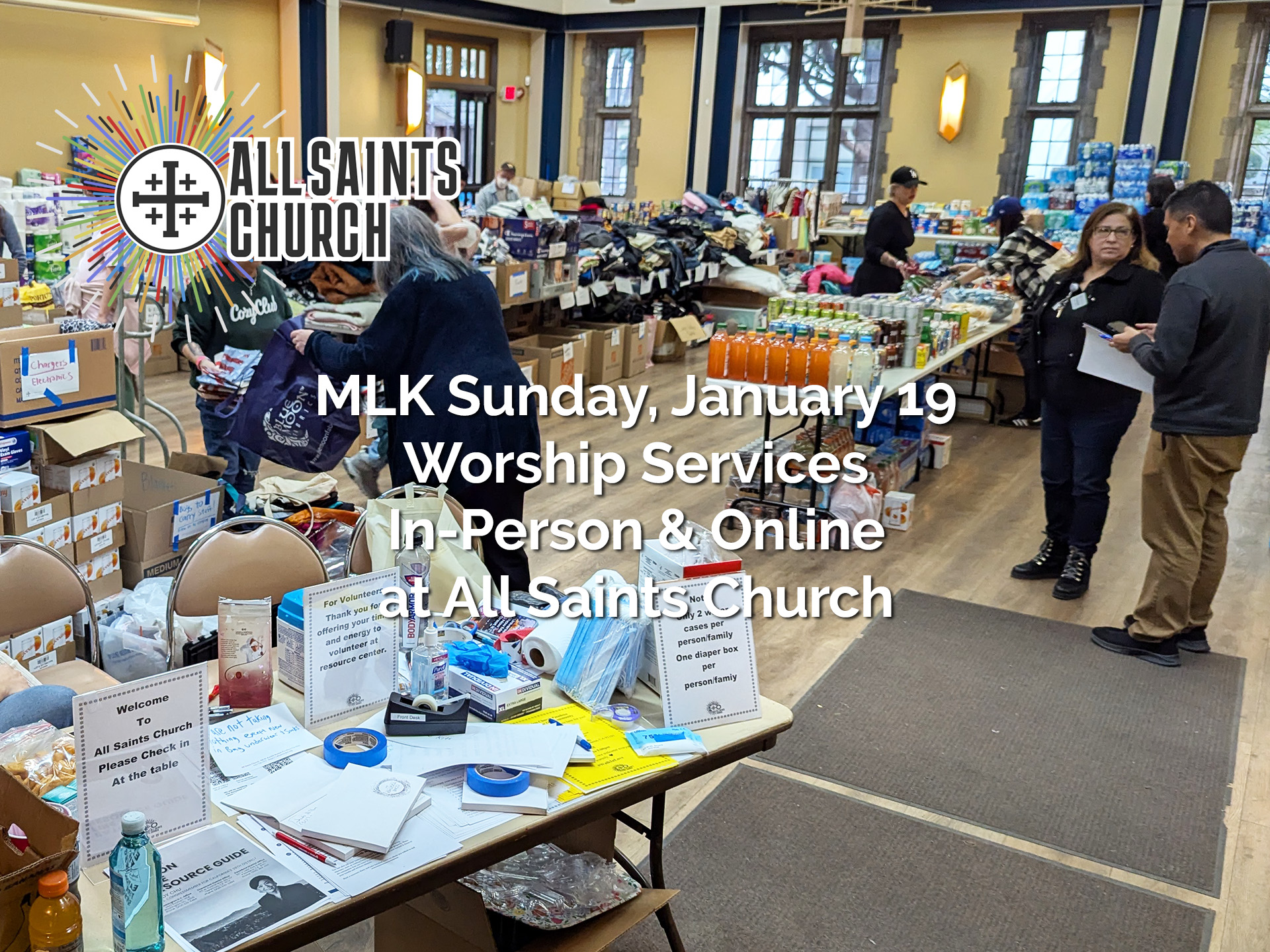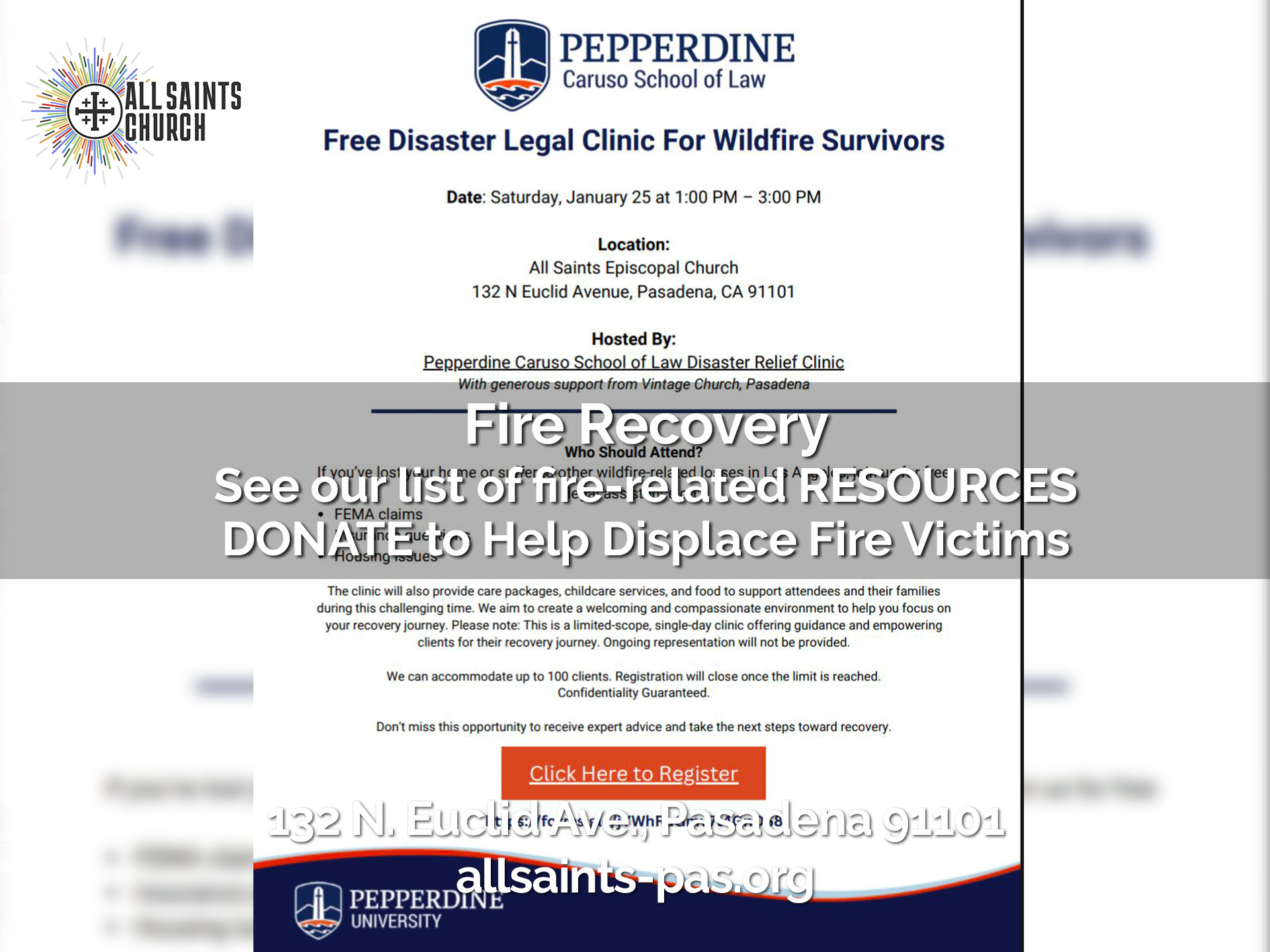“We are going to listen to and follow these young leaders who have embraced both their anger and their impatience as tools to dismantle systemic evil.”
Sermon by Susan Russell at All Saints Church, Pasadena, on Sunday, February 25, 2018.
“Patience, a quality of holiness may be sloth in the soul when associated with the lack of righteous indignation.” Amen
======
Those words of Rabbi Abraham Heschel were ones I learned in seminary — words that were profoundly liberating from the conventional wisdom that privileges patience as a virtue without recognizing that misused it can become weaponized as a tool of oppression.
If you read “Gnaw on This” — the reflection on the Gospel for the upcoming Sunday we send out every week — you will have read about conventional wisdom — and heard it described as one of the most powerful forces in society.
Conventional wisdom is the wisdom of the crowd — the belief system that undergirds how societies operate. Conventional wisdom is not automatically good or ethical, but it is the values that a society holds most dear and so you go against it at your own peril.
Conventional wisdom held that Jesus should not have to die … that he would have been far more effective as a Messiah if he were a triumphant military leader. That’s why Peter took Jesus aside in this morning’s Gospel and rebuked him. We don’t know exactly what he said. Maybe he asked him to back off the Pharisees to not risk alienating the base. Maybe he told him there were rumblings about bringing those children into the center and letting the women be part of the mix and they needed to tone down the inclusion stuff. Whatever he said, Jesus wasn’t buying it.
“Get behind me, Satan … for you are setting your mind not on divine things but on human things.” Knock it off, Peter … you are confusing God’s wisdom with conventional wisdom.
As a little girl growing up in the 1960’s just up the road in Eagle Rock, I grew up with a boatload of conventional wisdom.
- Sugar and spice and everything nice; that’s what little girls are made of.
- If you can’t say something nice, don’t say anything at all.
- Children are to be seen and not heard.
As a little girl growing up in the 1960’s just up the road in Eagle Rock, I grew up rocking the boat on the whole boatload — and that went over just about as well as you might expect that it would.
I had a big vocabulary and an early desire to use it. I clearly had missed the meeting where they handed out the sugar and spice; I had a deep sense that saying important things mattered more than just saying nice things and I had no interest in being seen and not heard. I mean really: what was the point of that?
I literally remember my loving, confused, conventional parents shaking their heads and wondering — out loud — “where this one came from.” And I had an increasing sense of frustration that nobody else seemed to “get” how lame this all was … or what to do about it.
And then … when I was about 10 or 11 … I discovered the Madeleine L’Engle novel “A Wrinkle in Time” — and I discovered that I was not alone. I discovered a story where there was a whole set of wisdom beyond the conventional kind. I entered a narrative where being unconventional was a gift — not a curse — and where the young girl protagonist … Meg Murry … used both her impatience and her anger as tools to dismantle the systemic evil that threatened to consume the universe in general and her little brother in particular. Meg was my kind of girl!
I read it over and over and over again. I waited eagerly for each and every one of Madeleine L’Engle’s subsequent books to come out. Into my adolescence and young adulthood I literally read every word she ever wrote. When I got to seminary I realized she was arguably the most influential teacher I ever had … and one of the great privileges of my life was getting to spend a weekend at Mt. Calvary in Santa Barbara with her at a writer’s retreat in the early 1990’s.
And over the last 50 years I have periodically pulled “A Wrinkle in Time” off the shelf and read it again — an old friend that never disappoints. A book whose deep truths continue to transcend conventional wisdom all these years later.
And yet, it was a book that almost didn’t get published. It was rejected by at least 26 publishers, because it was, in L’Engle’s words, “too different,” and “because it dealt overtly with the problem of evil which was really too difficult for children.”
That it defied conventional wisdom at this point could go without saying. What I do think bears noting is that Madeleine was an Episcopalian — and her deep faith infused not only the narrative of “A Wrinkle in Time” but all of her subsequent work. One biographical blurb notes:
L’Engle believed in universal salvation, writing that “All will be redeemed in God’s fullness of time. All the strayed and stolen sheep. All the little lost ones.” As a result, many Christian bookstores refused to carry her books, which were also frequently banned from Christian schools and libraries. At the same time, some of her most secular critics attacked her work for being too religious.
She defied conventional wisdom — going up against it at her own peril — and coming out on the other side. And as a result books were written and lives were changed by the invitation and example to go and do likewise … not only for little girls growing up in Eagle Rock in the 1960’s but through the decades since. Here is just a tiny example of how she merged her faith in her writing in the service of defying conventional wisdom — from her book “Walking on Water:”
Each time an unexpected discovery is made in the world of knowledge, it shakes the religious establishment of the day. Now we are often told that it is unfaithful to question traditional religious beliefs, but I believe that we must question them continually. Not question God, but question what human beings say about God.
Otherwise like those of the church establishment of Galileo‘s day we truly become God’s frozen people. Galileo‘s discoveries did nothing whatsoever to change the nature of God; they threatened only rigid ideas of the nature of God. We must constantly be open to new revelation — which is in itself another way of hearing God. The great artists keep us from frozenness, from smugness, from thinking that the truth is in us rather than in God
They help us to know that we are often closer to God in our doubts than in our certainties, that is all right to be like the child who constantly asks Why? Why? Why?
Today we are being led by children and young people who are not settling for just asking “Why?” … they are stepping out and saying “Hell no!”
We have seen the powerful witness of the young #BlackLivesMatter activists in the ongoing struggle to dismantle white supremacy and challenge systemic racism.
We have heard the courageous voices of the young Dreamers leading the movement for just immigration reform.
And in the last ten days we have seen an extraordinary outpouring of passion, energy and activism spearheaded by the students from Marjory Stoneman Douglas High School in Parkland, Florida. In the wake of the tragic shootings that devastated their community they have mobilized, galvanized and organized to defy conventional wisdom that the gun violence in our nation is an intractable, unsolvable problem.
- They are refusing to become just the latest hashtag in the growing list of mass shootings.
- They are speaking out when there is nothing nice at all to be said about the scourge of gun violence and the power of the NRA gun lobby.
- And they are most certainly refusing to be seen and not heard.
And so we have heard Emma Gonzalez: “We are up here standing together because if all our government and President can do is send thoughts and prayers, then it’s time for victims to be the change that we need to see.”
And we have heard David Hogg: “I wanted to make sure that even if our souls were left behind on that classroom floor, our voices would echo on to the halls of Congress.”
And we have heard Sarah Chadwick: “Never again should a child be afraid to go to school. Never again should students have to protest for their lives.”
And we are going to continue to hear. To listen. To follow these young leaders who — like Meg Murry — have embraced both their anger and their impatience as tools to dismantle systemic evil
It is a time for them to lead … and it is a time for us follow. One more quote from Madeleine L’Engle:
“It is often possible to make demands of a child that couldn’t be made of an adult… a child will often understand concepts that would baffle an adult. This is because she can understand with a leap of the imagination that [which] is denied the grown-up who has acquired the little knowledge that is a dangerous thing.”*
“The grown-up who has acquired the little knowledge that is a dangerous thing.”
I don’t want to be that grown-up. I don’t want you to be that grown-up. And I know for a fact certain that Jesus doesn’t want us to be those grown-ups any more that he wanted Peter to be that grown-up.
He does not want us to settle for conventional wisdom over God’s wisdom — for the little knowledge that is a dangerous thing; does not want us to wait until we have something nice to say before we say anything at all.
Instead, as we continue to follow Jesus into these forty days of Lent and beyond, may we be given the grace to remember that “Patience, a quality of holiness may be sloth in the soul when associated with the lack of righteous indignation.”
… and to put our righteous indignation into action as we stand with and follow the leaders of the #BlackLivesMatter movement; the Dreamers and the Florida students who claim this mantra of their school’s namesake — Marjory Stoneman Douglas — as their own:
Be a nuisance where it counts;
Do your part to inform and stimulate the public to join your action.
Be depressed, discouraged and disappointed at failure and the disheartening effects of ignorance, greed, corruption and bad politics — but never give up.
Amen.
==================
*L’Engle, Madeleine (May 12, 1963). “How’s One to Tell?”. The New York Times. p. BR21
** Eccleshare, Julia (October 2, 2007). “Madeleine L’Engle: Bestselling children’s author, renowned for A Wrinkle in Time”. The Guardian.



